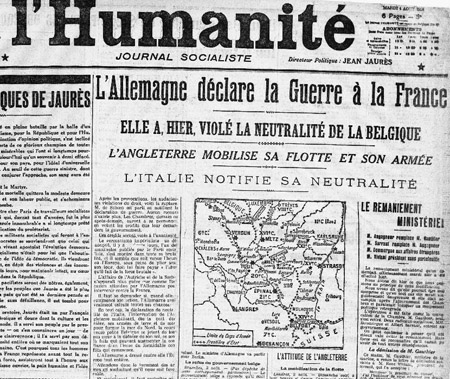![]()
Translating a phrase or a document from one language to another seems like such a simple thing that most people take the process for granted. (If you don't know any other languages than English, then you probably haven't done much translating!) Translation is something that is not that easy, yet it is so important for historians of non-US history. Simply put, you cannot study Russian history if you cannot read and understand Russian. Despite the appearance of electronic translator devices or tools and even software (or apps) to automatically translate materials--Just have a look at a Google search result for a foreign phrase--and you'll see how deceptively easy it looks.
Hopefully, you all know that there are a lot of different languages in the world and that history is written in all of those different languages; and that means that historical materials exist in all those different languages. To be a historian, you must have an ability to use other languages (besides English) because you will have to do research in other languages to be able to write about historical subjects. For example, if you were studying the opening month of World War II in Europe, then you should probably be able to read materials in English, French, German, Polish and Russian (to name just a few of the relevant languages). If you can only read English, then you are not going to be able to do a good job as a historian because you are going to miss a lot of parts of the past's story. This assignment is to give you a small taste of working as a historian and translating historical materials into English.
Translation is an art (some languages are more difficult than others). I talk a bit about this in my notes on Franz Kafka.
Sure, there are many free online translation services available in which the software automatically translates pages, such as the popular Google translate or Babelfish.com or translator.ehubsoft.net. You can use whatever online tools that you can find. Luckily, for our purposes in this assignment, there are many English-French dictionaries online. Here are three.
- The ARTFL project
- French-English Dictionary
- French » English dictionary with thousands of words and phrases
- Just thought that I'd add this website, which a student brought to my attention, for those who have trouble with French verbs: http://www.conjugation-fr.com.
For this assignment, I will choose some French passages (usually a couple of hundred words) from
- Verdun Argonne, 1914-1918 (Michelin Guide, 1936)
- E. Deliége, Un Poilu de la Forêt d'Argonne (1916)
- Jean des Vignes Rouges, Bourru, Soldat de Vauquois (Paris, 1917)
- or whatever else I might currently be reading (usually about World War I)
If you are interested in one of these other languages, I also have available
- some German pages from Schlachten des Weltkrieges Band 22 Das Marnedrama 1914 1. Teil
- some Italian pages from Novant’anni fa la Battaglia di Caporetto - Ottobre 1917 Un’occasione per riflettere
- and some Russian pages from Русская армия в Великой войне: Сражение при Горлице-Тарнов 2-6 мая 1915 г.
When you contact me, or your instructor, about doing the assignment, I will provide you with about 200-250 words of the French text for you to translate. Of course, you may not be an expert in French, but to do this assignment, you don't have to really know any French. Today, there are tools that make translating much easier than it was in the past, and you are going to be using those tools? If you would like a different language, just let us know.
I understand that there is a certain level of art involved in translating. It can be extremely difficult to render idioms, dialects, jargon, slang, obscene language and other complicated grammar into English, but with the online tools, you can get the general sense of what is being said in the original French. I would also add that a good translation is usually not a word for word exact translation in which one French word equals one English word. What you are trying to do is take the sense of the French and translate that into good English. For example, "À cheval donné on ne regarde pas les dents" equals "At a given horse one doesn't look at the teeth" or better said in English as "Don't look a gift horse in the mouth." (Wikiquote)
Here is basically what you should do to complete this assignment.
- If Professor Evans is not your course instructor, contact your specific instructor for a passage to translate.
- After you receive the passage, copy and paste your passage into Google translate and see how that translator works. Does the translation make sense? Or are their weird or awkward parts?
- Next, if there are specific phrases that are unclear, you can try some of the other online translators to see if they work better. (Just do a Google search for online translation. There are many available to use, and you will find that some are better than others.)
- I then suggest that you try to look up individual words in one of the French-English dictionaries listed above.
- Write up your final translation.
- Submit your final translation assignment on Canvas. This will include on page 1 (the copy of the original French passage and your translation) and on page 2 (a discussion of your work). Your discussion should (a) examine how accurate you found the Google translate tool to be; (b) how easy./difficult you found the translation process; (c) and the choices that you made in deciding on specific words/phrases.
